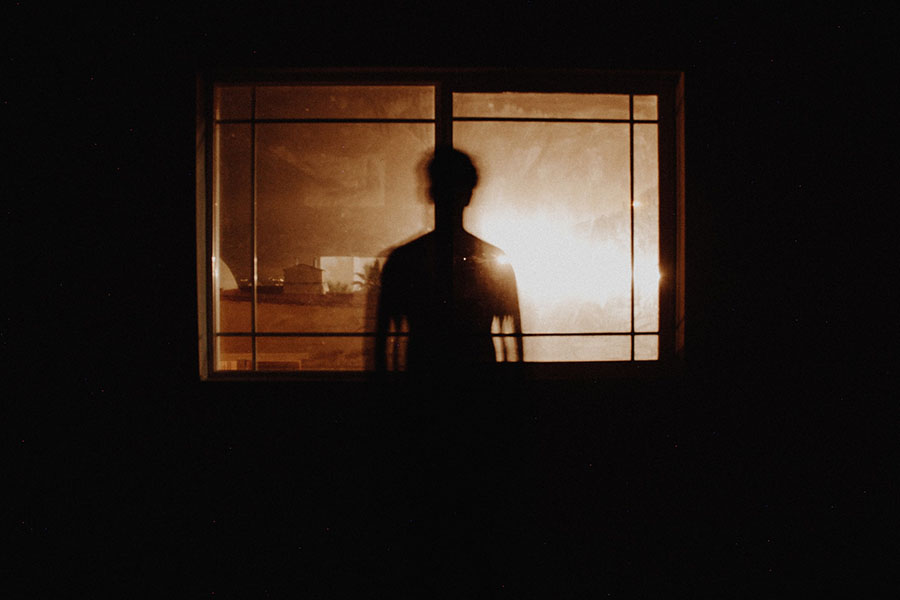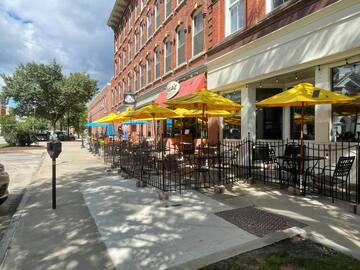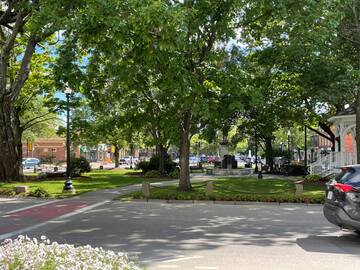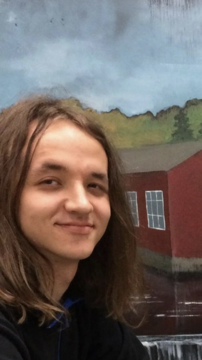
I, Alex Harvey, indirectly witnessed a hate crime and I was too much of a coward to intervene. My failure to do the right thing has haunted me ever since. As badly as I feel about this though, my feelings don’t matter. I am humiliated by the fact that I didn’t stand up to thugs, but I am more upset that the lives of two innocent people were permanently changed for the worse. I’m on my own path to penance and I’m not telling you this to ask for forgiveness, sympathy, or to hear that everyone would’ve acted the way I did. I’m sharing this because I hope that by telling you my shortcomings, you’ll have the courage to step up and do the right thing when and if you are in this situation.
Bystander Syndrome is Real…
When I first heard the story of Kitty Genovese getting raped and murdered while thirty-seven or thirty-eight witnesses (depending on who tells the story) watched and did nothing, I thought it was a farce. It turns out, I was right. The original New York Times story was a farce, as The Times itself later admitted.
What’s not a farce is the phenomenon this murder popularized, “The Bystander Effect.” According to Psychology Today, this is “…when the presence of others discourages an individual from intervening in an emergency situation, against a bully, or during an assault or other crime.”
Researcher Stephanie Preston says that this happens because the presence of strangers induces stress which affects a person’s judgement.
“Diffusion of responsibility and fear of judgement are driving factors behind the bystander effect, and why many would rather do nothing than risk making a serious mistake,” Preston says. When there are a lot of people around during a crisis, your brain convinces you that someone else will step up and be heroic enough to save the day.
I was alone in my apartment one night when I heard hateful screams float through my window. I looked out at the street below and saw what appeared to be four grown men chasing an adolescent queer couple down the street, screaming homophobic slurs, and throwing stuff at them. It was dark out and they were too far away for me to make out what they were throwing, but it was obvious that these middle-aged men were about to assault these kids. My heart and my mind were screaming at me to go down and help them, but my feet wouldn’t move. I was shocked that this was happening, that a bona fide hate crime was so brazenly happening on Main St. in this little college town. I would later learn that this is called “the freeze” and it’s a third response when your brain feels that fight and flight aren’t viable options.
…But That Doesn’t Excuse Inaction
It would be easy for me to keep pulling up psychology articles that let me convince myself I didn’t do anything wrong, that I had a natural reaction to a scary event, that I could’ve gotten hurt if I tried to step in. I believe that’s all a bunch of excuses.
Why Are They All Excuses?
Chalk it up to misguided machismo, but I believe that if you have the means to act, you also have the duty to act. There’s no law that says you must be a good person, but if you’re not going to try to be a good person, what’s the point of staying alive? Not helping someone in need flies in the face of everything I was raised to believe.
A lot of you were probably raised with similar ideas. A lot of the classic male heroes that we were taught to admire are action heroes who would beat everyone up to save the day. We’re usually taught that violence is the proper solution to problems in life. Taking a step back, there’s a lot of problems with this specific aspect of masculinity. In many scenarios where I’ve witnessed this aspect of masculinity, it’s men feeling the need to be a superhero to defend something or someone. In reality, it really didn’t need to escalate to a level of violence.
However, as awful as this might sound, I think this specific context is one of the few situations in which this aspect of masculinity might actually be kind of a good thing. Taking action doesn’t mean pretending you’re Steven Seagal and punching your way to glory. That’s selfish and it’s also a great way to get yourself killed, but you need to step up (I’ll touch more on this later) .
Personal ethics aside, if you’re not going to act, that probably means that nobody else is going to act either. If you’re scared, stunned, or apathetic, that probably means that everybody else around you feels the same way.
Psychologists tell us that as strong as The Bystander Effect is, it quickly goes away once even one person overcomes it. Once one person steps up in even the smallest way, it becomes easier for everyone else around them to break out of The Bystander Effect and join them.
“…once that happens, that’s a gateway to other people helping, and they might be motivated to get past their fear to do something as well,” says Matt Langdon, founder of Hero Construction Company, a company that trains people to overcome the Bystander Effect.
Half the town’s bars and restaurants are probably concentrated within eyesight and ear shot of where this hate crime happened. In addition to busy bars and restaurants, this street is also lined with apartment buildings. There were people milling about on the sidewalks while it happened right next to them.
I understand that there’s a lot of commotion going on in a rowdy bar and you might not notice what’s happening outside on the street, but if I was aware of what was happening up on my 3rd Floor apartment, the people in the streets had to have known what was going on. I know this because as the attack continued and those poor girls screamed “please, no, stop, you’re hurting me!” over and over, the streets fell quiet around them. The joviality of the evening disappeared while this happened, but the raucous party atmosphere resumed as soon as the attack ended. There were countless other people who witnessed what was happening and most of those people were in a position where they were more easily able to help than I was. But I was the only one who did anything to help at all and I still did less than the bare minimum. I called the cops.


You Won’t Be Prepared When It Happens
One of the reasons why the Bystander Effect is so strong is that these incidents happen without warning. When a situation like this happens, it’s going to hit you unprepared. It’s going to be like someone came up behind you and walloped you with a cast iron skillet over the back of the head. It won’t feel real, it’ll feel like something from a movie.
I certainly wasn’t prepared. I remember it was an ordinary and otherwise uneventful Friday night. This means that I was probably reading, writing, or playing guitar. I definitely wasn’t sitting around thinking I’d witness a hate crime.
It’s Going To Happen In A Place You Won’t Expect
Just like these things happen when you don’t expect them, they also happen in places that you won’t expect.
My father is a retired Army officer, and I spent my childhood bouncing around the country with him. I’m not “from” Georgia, but I spent my high school years there, and I’m very aware of this country’s history of lynching. When I think of incidents like the lynching of Emmet Till or the murder of Matthew Shephard, I generally think of hate crimes happening in remote locations. After all, who wants to be seen being racist or homophobic?
I was wrong. It seems the intention of many hate groups is to commit public acts of violence. This is one of the ways that they spread terror. There’s a reason that hate groups like to publicly march through the streets, especially in minority neighborhoods. There’s a reason that they openly initiate violence at their rallies. This isn’t new, it didn’t start with the Proud Boys or Three Percenters. It goes straight back to Nazi Germany and Fascist Italy.
According to the FBI, over half of hate crimes take place in a variety of public places, with “highways/roads/alleys/streets/sidewalks” accounting for most of these crimes. The only locations with higher hate crime rates are “in or near residences/homes”. In other words, the place you’re most likely to witness a hate crime as a bystander is on a public street. If you’re seeing one happen in a home, you’re probably either a victim or a perpetrator.
Overcoming the Bystander Effect
“Nobody is born with courage, it is literally something that you have to learn,” says Kate Swoboda, the author of “The Courage Habit”. Swoboda says that this is a response that you have to train your brain for, and that it gets easier with practice.
“Heroism is less about exceptional individuals swooping in to save the day than it is about everyday people acting on instincts that have been developed over a lifetime,” says the author of this BBC article.
As I said earlier, you’re not Superman and you don’t have to use Kung Fu people to submit perpetrators. In fact, that can actually be dangerous and irresponsible. But stepping up in even the smallest way is better than being a bystander.
A frequently cited real life example of someone stepping in rather than being a bystander is an incident in 2018 when a woman named Anna Lushchinskaya assaulted a young Asian woman while hurling racial epithets at her victim. The incident began with Lushchinskaya screaming at the other woman and it wasn’t until she began physically assaulting her victim that other passengers began stepping in to stop Lushchinskaya.
As strong as the Bystander Effect is, it’s imperative to overcome it and help in any way you can, because people’s lives might literally depend on it.
“The opposite of a hero isn’t a villain, it’s a bystander,” says Matt Langdon.
I was eventually able to overcome the Bystander Effect, sort of, and do something. But what I did was too little too late. I called the cops and I looked out for them for about an hour, but no authorities showed up. Even if they showed up, who’s to say they would handle the situation appropriately and not escalate it.
Ultimately, I don’t know what happened to the girls. I hope if they’re reading this, that they’re okay and I’m sorry I didn’t help. I’ve been haunted by my inaction ever since.
The Guilt WILL Haunt You
Not a single day has gone by since that night where I haven’t thought about what happened and not wished that I had acted differently. I have a lot of friends who are queer and/or women, and for months I couldn’t look a single one of them in the eye. It’s still basically impossible if it’s someone I know who has been a victim of something similar in the past.
For months I heard those women screaming for help every time I closed my eyes. I still hear them screaming when I’m trapped alone with my thoughts late at night with nowhere left to run and hide from myself.
But after a while, I also realized that I’ve got to move on. Not for my own mental health or anything like that, but because dwelling on this makes me less capable of helping others in the future. I didn’t act as I should have, and I don’t feel I deserve peace of mind over this. But I realized that this needs to be a motivation for me, not a scarlet letter that I choose to wear because I’m narcissistic enough to wallow in my own guilt and misery.
I still feel wretched about what happened, but now I actively try to use this experience to learn and look for ways to help others and fight modern fascism and bigotry at every chance I get. Now I have to actively look for opportunities to practice courage. This is something that everybody should do, but now my motivation for it is particularly strong and personal.
There are a lot of ways to do this and they don’t all involve going and harassing the Proud Boys.
This means donating money to anti-hate groups. This means educating myself on modern fascism, the various forms it takes, and how bigotry and hate is so deeply rooted in our culture.
This means not making any excuses for people who express hateful opinions. Some people call this being “close minded” and not “respecting others opinions”. But y’know what, screw other people’s hateful opinions.

